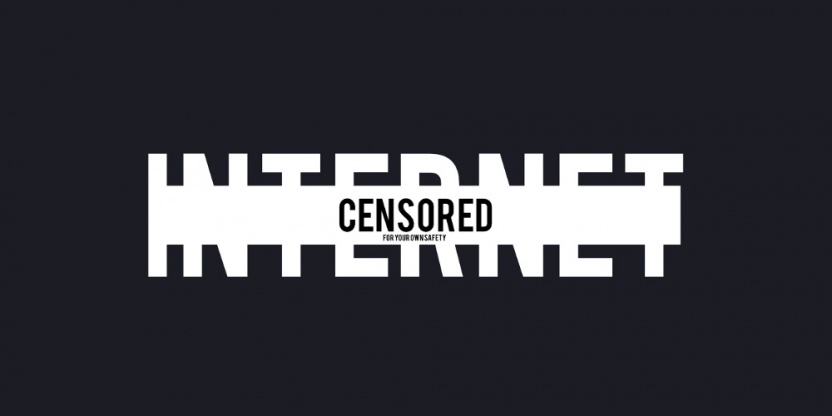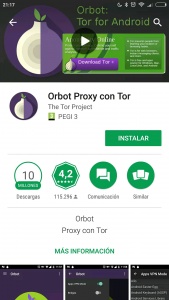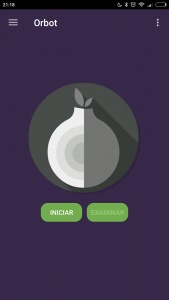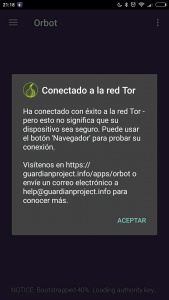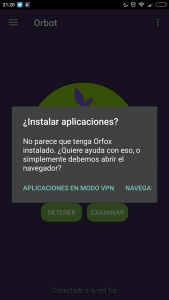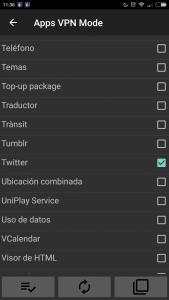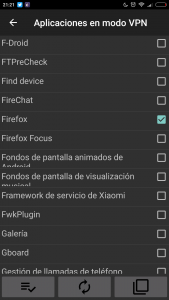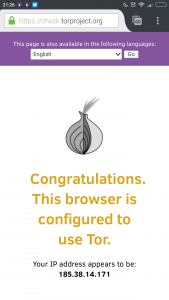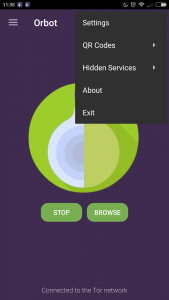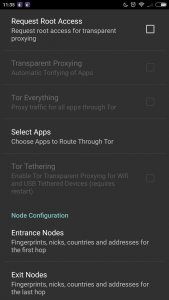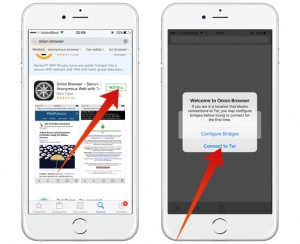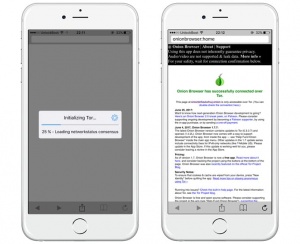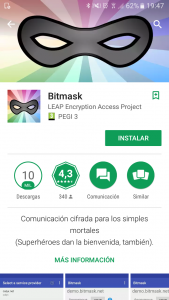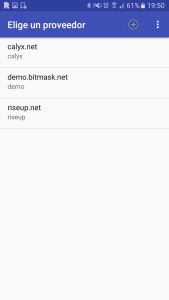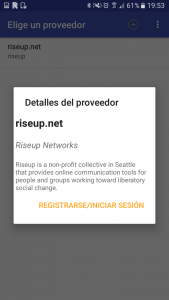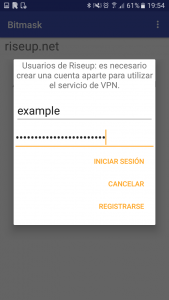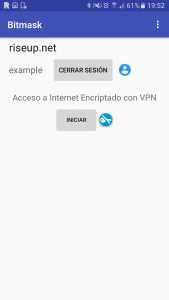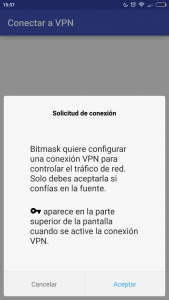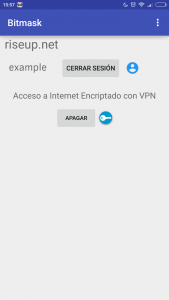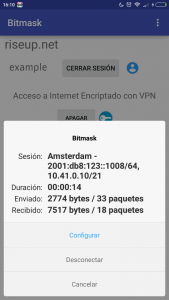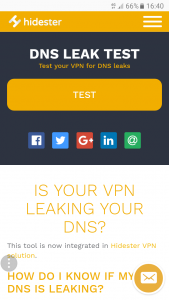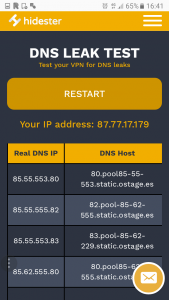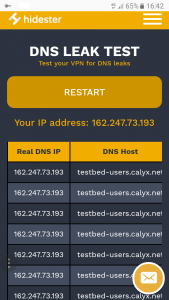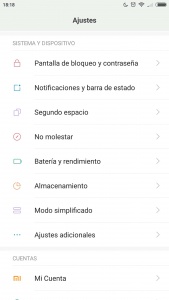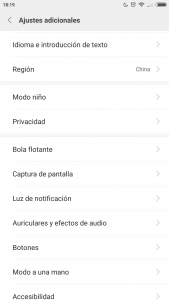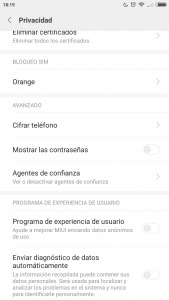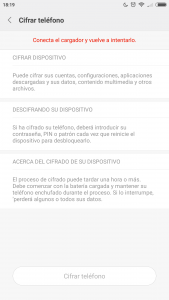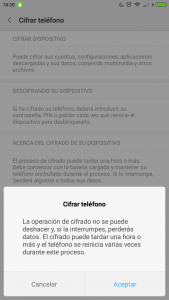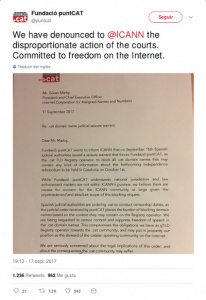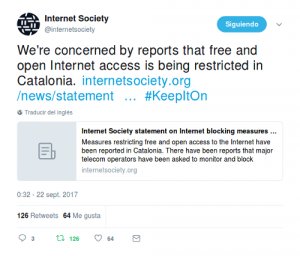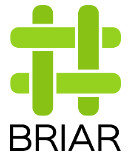Sources for update:
https://www.localizationlab.org/blog/2022/2/27/digital-security-assessment-amp-list-of-localized-tools-in-ukrainian
https://ssd.eff.org/en/module/attending-protest
Everything explained in this guide is to protect the inviolability of our communications, our right to privacy and freedom of political opinion, expression and access to information, all of them fundamental rights that have been legally recognized for centuries.
It is important that legal doctrines that blame the tools for the crimes are not established. The tools are neutral. Making use of a particular tool can never be a crime in itself. It is only the use that is made of them that can be considered criminal.
In the post-Snowden revelation era, many institutions, including the UN and the EU, remember that the only way that people have to protect themselves from mass surveillance is through the use of autonomous tools to protect our communications.
[European Parliament Science and Technology Options Assessment (STOA) on Mass Surveillance: “Encryption is the only option in the hands of the population to defend themselves against massive surveillance” – http://www.europarl.europa.eu/stoa/webdav/site/cms/shared/0_home/STOA Study Mass Surveillance Part 1.pdf]
Basic how-to guide for preserving fundamental rights on the Internet
- Arbitrary website and application blocking
- Mobile Device Encryption
- Hosting: privacy and security
- Messaging, VOIP, email and file sharing privately and securely
- Blocking of messaging applications
- Internet shutdown
- More
[This guide is to be improved collectively; if you have any corrections write to: info[at]xnet-x.net /Public PGP key]
# Arbitrary website and application blocking
Arbitrary Internet blockages occur primarily – but not only – when a government intentionally disrupts access to websites, mobile applications or electronic communication services to censor or control what people say or do.
Internet access is essential for the exercise of our freedoms and should be considered in itself a fundamental right [#KeepItOn]. Partially or totally blocking Internet access is a common practice in countries with authoritarian regimes, for example, to avoid access to certain types of content (in opposition to the regime, LGTBI, etc.) and to exercise control over conversations and the flow of information.
How to access websites that are arbitrarily censored or blocked in a particular connection/location: Tor and VPN
Both the Tor network and a VPN allow access to websites and applications that have been improperly blocked in a region or country, surfing the Internet as if it was being done from another geographical location.
For example, if a country blocks access to Twitter, people can use the Tor network or a VPN to access the social network as if their connection was coming from another point or country where these arbitrary restrictions on freedom of expression and access to information are not happening. Moreover, navigation in both cases is encrypted – in a “closed envelope”, so that it can only be read by the sender and receiver.
Tor for Android: Orbot
How to use Orbot:
- Open and start Orbot
- You are connected to the Tor network
- Click on “Apps in VPN mode”. You do not need to install Orfox, you can use your usual browser.
- Select the Apps that you can not access to because of the blocking
- You can also select your browser, other apps, or everything (increases battery consumption)
- Verify that you can access the blocked App with Orbot. If you have also activated it for your browser, check that it works here
- To add more Apps to Orbot go to Settings
- and there ‘Select Apps’
Tor for iPhone: Onion Browser
There is no iPhone application that allows use of the Tor network for any application installed on the device. However, with Onion Browser you can access websites and the web version of arbitrarily blocked applications.
- Download Onion Browser for iPhone; open it and select ‘connect to Tor’
- From here you can access blocked websites and blocked web apps
Tor for PC: Tor Browser
Download Tor browser for Linux / MacOS / Windows.
How to install and use Tor in Linux / MacOS / Windows.
Video: How to use Tor in PCs created for the launching of the Whistleblowing Platform against corruption of the City Hall of Barcelona (CAT):
VPN
A VPN (Virtual Private Network) allows your data to travel through an encrypted connection, or a kind of tunnel,before heading out to the open Internet, and connect to the Web from another location.
The easiest and fastest application to install in order to activate a VPN connection is Bitmask, which is also free. At the moment it is only available for Android phones and Linux PCs although its version for the MacOs iPhone is about to be released and, in the not too distant future, its Windows version. However, there are many very low-cost payment services that offer VPN connection for all types of devices, for example ProtonVPN which also offers a limited free version – see below for information on Internet services that ensure the preservation of privacy and information.
It is advisable to have both Tor and VPN options. Iftraffic is blocked through Tor, you can then use the VPN, and vice versa.
- Download and install Bitmask
- Open it. Select a provider. Any one of the 3 works
- Register (or initiate session )
- Choose a username and password
- After logging in, start Bitmask
- Accept connection via VPN
- You will see an icon in the top bar indicating that you are logged in
- Display the top notification menu to check the status of Bitmask or turn it off
For a correct configuration of the VPN connection, it is important to ensure that you are not suffering ‘DNS leakage’. Otherwise you will not be able to overcome the blockade and will reveal your connection data. In the page DNS Leak test you can find out how to test it and how to solve it,.
- Visit the page DNS Leak test
- Perform a test without the VPN connected. Look at the data.
- Connect the VPN and perform another test. If the data is the same you have a DNS leak. The same page explains how to solve it.
# Mobile Device Encryption
Encrypting devices, especially mobile phones, is essential to maintain the privacy of personal data should they be lost or stolen. This is why most smartphones have installed by default tools which, in a few simple steps, encrypt the entire device, and it always is recommended to protect the privacy of data, accounts, contacts and user information.
Mobile Device Encryption: Example with Android
- The device encryption option is in ‘Settings’ -> ‘Additional settings’
- ‘Privacy’
- ‘Device Encryption’
- In order to encrypt the device you need to have the battery charged and it should also be plugged in
- When loaded and connected you can encrypt. The process is long and if interrupted you could lose data, so it is advisable to make a previous backup.
Encryption of iPhones.
In geneal, as a good practice, you should not store unnecessary information in your devices, delete periodically. Even though you may be sure that everything you have is absolutely legal, remember that it is not you, but the power who decides what is legal and what isn’t, and what today is legal might not be so tomorrow in case that the regime becomes authoritarian. Deleting and emptying the bin is not enough, you have to use specific tools that overwrite the data several times. More information and tools to do it here (a backdoor was discovered in CCleaner for Windows that has already been patched, always download the latest version).
Remember to also create and maintain secure, unique, and strong passwords. Some tips on how to do this here (note: unlock by pattern is always much weaker than an alphanumeric password).
Note to the Spanish State: In the case that security forces confiscate someone’s device because this person is under investigation , he or she has the right not to reveal encryption keys, PIN, unlock pattern, password or similar data, in accordance with the right not to testify against oneself (Criminal Procedure Law Art. 118 h & Art. 588 septies b 2; as explained in this document to the Secretariat of State of the European Union).
# Hosting: privacy and security
The censorship of websites by authoritarian governments can happen at a deeper level when, instead of blocking access to the web through the network, the page is entirely closed down either by intervening in the servers or by seizing the domain. In this case, tools like Tor or a VPN will not help.
In order to foil such attempts (or create a mirror – copy of the same website – in a secure hosting if the web has already been censored), citizens living in authoritarian states should not choose a server within the territory of their country. It is necessary to search and choose countries where the legal framework offers strong guarantees regarding freedom of expression and information about where to locate the hosting.
Neither should they register the domain of a website susceptible to be censored with Top Level Domains of their own country. It is easier for a government to intervene in its TLD than in others such as .net, .eu or .is. In Spain, we have recently experienced a preposterous example of this, unprecedented in the European Union, with the TLD .cat:
- Fundació Puntcat denounces to ICANN the inordinate action of the courts assaulting its headquarters
- Internet Society statement on Internet blocking measures in Catalonia, Spain
Finally, to protect your privacy and security (to avoid spam, spam, or other harassment), you should acquire your domain in registration services that offer strong legal security, eg Njalla.
Many domain registrars undertake not to publish the owner’s data and to manage the requests they receive themselves, whether they are requests from buyers, individuals, or authorities and institutions. This type of service is known as private whois.
The importance of this requirement can be understood by entering, for example, https://whois.icann.org/ or https://www.nic.es/sgnd/dominio/publicInformacionDominios.action (for domains ending in .es) and looking for any web.
A file will appear in which all data will be output. If the person who owns the website has not used a provider which had undertaken to protect their privacy, his or her information will be published,and anyone from anywhere can see it:
Name: …
Organisation: …
Street: …
City: …
State: …
Postal Code: …
Phone: …
Email: …
If the owner has taken the functional and customary measure that the requests are to be managed by the provider (has activated the private whois service), the data will be forwarded to the service provider. The provider will notify the owner if someone has searched or required it. It is important that the provider should assure you in the contract of the deadlines within which it provides you with the information. The more ethical providers which are respectful of the rights of their users usually offer deadlines between the requirement and the communication of your data to those who require it if you have not answered.
Not all domains agree because not all domains are managed in the same way. Generic domains, .com, .net, .biz, .org, etc… are managed by ICANN – the Internet Corporation for Assigned Names and Numbers, the leading Internet governance body, and this organization is the one which permits the use of domains that can have recourse to to Whois protection. The .es domains, on the other hand, are managed by Red.es and, these domains, do not allow hiding the data of the registry of users who want to acquire of a .es domain.
The .cat domains, managed by the puntCAT Foundation, do not offer total privacy of the identity either.
# Messaging, VOIP, email and file sharing privately and securely
Massive surveillance of what we do and say on the Internet (and in all electronic communications) by governments has been clearly revealed thanks to Snowden’s revelations. Below are some tips to help defend privacy against these practices using encryption tools.
Messaging
To protect the privacy of your communications always use messaging applications that have end-to-end encryption by default. We recommend using Wire (download and install Wire for Android phones or iPhone; Linux, MacOS or Windows PCs; or in the web browser), end-to-end encrypted messaging app whose use is easy and intuitive. It is possible to create an account in Wire without having to associate it with the mobile . To do this, it is necessary to first create the Wire account from the PC, a process that does not require the mobile phone number, and then install the Wire app on the mobile device and log into that account. For this and other characteristics Wire tops this list of recommended applications.
Another secure alternative is Signal (Android | iPhone), an end-to-end encrypted messaging app and recommended by Snowden himself.
Among other popular messaging applications, Whatsapp has also integrated end-to-end encryption in all communications by default (however, Facebook has already shared user data with WhatsApp and the social network, so Signal is still the best choice). Telegram, has encryption option but is not active by default.
It is important to note that, even though they are encrypted end-to-end, except in the case of Wire if an account has been created from the PC as we explained, the above applications are associated with the user’s mobile number. Hence, even if the communication is encrypted (a third person cannot see the content) it is not anonymous and the identity of the sender and receiver, as well as connection and geolocation times are known.
Video calls – VOIP
You can make encrypted calls and video calls over the Internet with Signal (and Whatsapp) to a contact. MeetJitsi allows you to make group video calls as well as Wire. Calls and video calls through Skype, Hangouts or others do not sufficiently protect the privacy of your communications.
Encrypted email
In the case of e-mail, it is important to know that all e-mail sent and received can be read (and is actually processed) by the mail service providers. Some of them, when required by the authorities, show little concern about the privacy and legal security of their customers/users. We do not recommend the use of services like gmail, yahoo, hotmail, etc. In any case, it should be known that sending any email without encryption is almost the same as sending a letter in an open envelope. One good alternative to this services is Protonmail, which automatically applies end-to-end encryption to all emails. As a result, the encrypted emails cannot be shared with third parties. The free version has 2Gb storage.
Despite what email service you use it is always possible to protect the right to confidentiality of communication using encryption with PGP. This allows you to ensure the privacy of communications and files sent via email. This guide from Security in a Box explains how to use email with PGP with Linux | MacOS | Windows.
Again in this cases, the communication is encrypted in terms of content, but not anonymous.
What does this mean? It means that, even if we do not indicate our name, or we use an email account in which our identity does not appear, or a throw-away one, all electronic communication leaves a trail , the so-called IP address, which is a unique address assigned to each device on the network and indicating the point from which a communication has been made. In addition, the sender, recipient, and subject of the message as well as other “metadata” of the mail are not encrypted and indicate who receives it, when, and other data. Therefore, the only real anonymity possible for transferring files and information can be achieved through the Tor network, because this communication is not made from point A to point B but the connection passes through several intermediate nodes within the Tor network, none of which knows the origin and destination at the same time. Obviously, accessing our regular account of gmail or any social network through the Tor network will reveal the identity even if the IP address is hidden.
OnionShare is an open source tool that lets you securely and anonymously share a file of any size. It works creating a temporary URL that points to the file and that is only accessible via Tor. Learn how it works and how to use it on the wiki.
Another example of how to deliver information privately and securely is the XnetLeaks mailbox for reporting corruption, based on Globaleaks and accessible through Tor.
# Blocking of messaging applications
Alternatives to private and public communication in case Signal or Whatsapp messaging applications and social networks are blocked. As a preventive measure against possible blockades or other repressive practices it is always advisable to diversify and have several alternative applications.
FireChat: for Android and iPhone
FireChat is a messaging application that allows communication between devices and publishing in public forums between nearby devices through mesh-networks.
- Public rooms: like #PublicRoom1, are open chats in which all messages reach all participants in the chat. All messages are public and not encrypted. The creators of FireChat recommend that people should not use personal data and that they should be careful with personal information that is shared in the public chats.
- Private Messages: Private messages are encrypted and can only be viewed by the sender and the recipients, which can be one or several.
This is the application used by demonstrators in the yellow umbrella revolution in Hong Kong when their communications were blocked.
Download FireChat for Android or iPhone: https://www.opengarden.com/firechat.html
How to use FireChat: https://www.opengarden.com/how-to.html
# Internet shutdown
In the extreme case of a shutdown in which the Internet connection is completely cut off, as happens in situations of great repression, there are applications that allow communication between mobile devices, even without connection.
Briar: for Android
Briar is an open source messaging application designed for activists, journalists and anyone else who needs a secure, easy and robust way to communicate. Unlike traditional messaging tools such as email, Twitter or Telegram, Briar is not based on a central server: messages are synchronized directly via p2p between users’ devices.
If the Internet is down, Briar can synchronize messages via Bluetooth or Wi-Fi, and thus maintain the flow of information in case of crisis. The devices must be able to connect between them so the maximum distance in the case of Bluetooth is 70 meters approx. or a little more in the case of Wi-Fi depending on its scope. In the case of groups or forums, the larger the group the greater the reach of p2p synchronization.
With Internet connection, Briar is synchronized through the Tor network, protecting users from surveillance.
Download Briar: https://briarproject.org/download.html
Howt to use Briar: https://briarproject.org/manual/
# More
This guide contains a series of basic guidelines for preserving your rights on the Internet. For greater security and privacy on the Internet, visit Security in a Box: https://securityinabox.org/.
The manual “Zen and the art of making tech work for you” to read more about creating and managing online identities as well as about building and maintaining secure spaces online and in physical life: https://ttc.io/zen
MyShadow to read and learn about tools and methodologies to understand and change your digital shade: https://myshadow. org/en
Finally in terms of basic logistics, it is recommended that you should always leave home with your devices charged and, if possible, with external batteries for greater autonomy.
Front page from Accessnow’s campaign KeepItOn.
Last posts on:
Digital Rights, Data, AI and Net Neutrality
- (Ca) Xnet signa un acord amb la Generalitat de Catalunya i l’Ajuntament de Barcelona per continuar el desenvolupament i desplegament de la suite educativa DD (Digital Democràtic)
- (Es) Llamamiento a la acción: #DeQuienSoyBlanco9J – Elecciones Europeas 2024: ¿Qué partidos intentan influir en tu voto a través de Facebook?
- (Es) #ChatControl – Lanzamos campaña contra la ley de monitorización automatizada de las conversaciones íntimas de la ciudadanía europea – CSAR
- (Es) Democratización de la identificación: identidad digital autosoberana – El peligro del acuerdo alcanzado en la UE
- (Es) IA: transparencia sí, pero no privilegios para el Copyright
